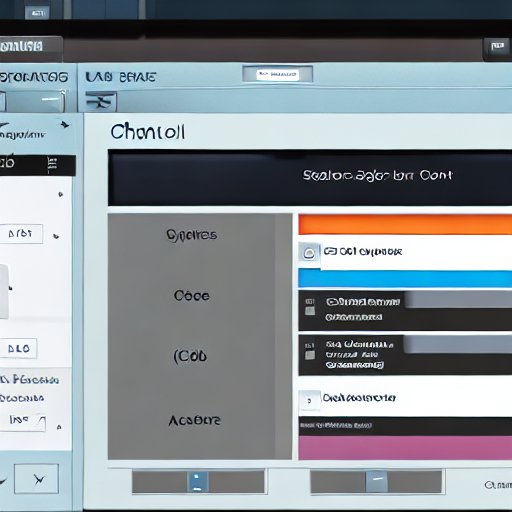Unveiling the Best for Your Website—cPanel vs DirectAdmin

Introduction:
“cPanel and DirectAdmin are two towering figures in the web hosting control panel universe. In the crucial task of evaluating which one is the best for your website—cPanel vs DirectAdmin—it’s vital to delve into their functionalities, cost implications, software support, and security provisions. This comprehensive guide aims to offer you those insights.”
Web hosting control panels are at the heart of successful website management. They determine the functionality, ease of use, and security measures for your web presence. Two Linux-based titans in this field are cPanel and DirectAdmin. This article delves into the depths of these two control panels, outlining their strengths and trade-offs to help you make an informed decision for your website’s future.
Unpacking the Linux Underpinnings: Fedora and CentOS
Linux distributions form the underlying bedrock upon which our control panels operate. DirectAdmin boasts compatibility with a broader range of Linux distributions, extending its support to the Fedora family (including Ubuntu) as well as the Debian family, notably CentOS. Contrastingly, cPanel limits its operation primarily to CentOS, with experimental status on Ubuntu.
Tip: Mermaid diagram illustrating Linux distribution support:
graph TB
DA[DirectAdmin]
CP[cPanel]
FF[Fedora Family]
DF[Debian Family]
DA –>|Supports| FF
DA –>|Supports| DF
CP –>|Supports| DF
Comparing User Experience and Features: Simplicity vs Richness
The juxtaposition of cPanel and DirectAdmin uncovers an interesting dichotomy in terms of user experience and features.
cPanel has a dominant presence in the web hosting industry, largely due to its rich feature set and superior user experience. It offers a robust platform teeming with utilities that simplify and enhance web management tasks.
Conversely, DirectAdmin is renowned for its simplicity and streamlined operation. Its minimalist design and negligible server resource footprint make it a lightweight contender, ensuring lightning-fast control panel interactions.
Assessing Cost: Free vs Licensed
Another key determinant when selecting a web hosting control panel is cost. Both cPanel and DirectAdmin provide free usage to end users. However, it’s crucial to note that while hosting providers bear the licensing costs for cPanel, these can be steep and often incur additional user charges. This cost is typically transferred to the customer, influencing the final pricing of hosting services.
Scrutinizing Software Support: Apache and Beyond
Both cPanel and DirectAdmin cater to major third-party hosting software and tools, fortifying their versatility and interoperability. As an added benefit, DirectAdmin also supports openlitespeed and an nginx reverse proxy for apache, increasing its agility and performance.
Security Analysis: Ensuring Protection
A non-negotiable aspect when selecting a control panel is the degree of security it offers. Both cPanel and DirectAdmin meet the highest standards in this regard, integrating multiple security plugins, such as ConfigServer Firewall, Fail2Ban, CloudLinux, and Imunify360. Additionally, anti-malware plugins like Bitninja, Opsshield cPGuard, and Linux Malware Detect fortify these control panels. Particularly noteworthy is DirectAdmin’s support for a commercial Web Application Firewall (WAF).
Making the Choice: DirectAdmin or cPanel?
In the realm of budget and value-for-money hosting, DirectAdmin shines with its lightweight operation and feature-rich offering.
Alternatively, if you seek an enriched user interface, extended functions, administrative task automation, and extensive support options, cPanel offers a viable choice. However, be prepared for a higher hosting budget when opting for cPanel due to its licensing costs.
In essence, both DirectAdmin and cPanel are viable control panels for web hosting, each with their distinct advantages. Your choice will depend largely on your budget, specific needs, and personal preferences. Regardless of your decision, both options will ensure robust, secure, and efficient management for your website.
Versatility in Database Management: MySQL and Beyond
Database management forms an integral part of a successful web hosting experience. Both cPanel and DirectAdmin provide robust support for MySQL, allowing you to manage your databases effectively. cPanel also offers support for PostgreSQL, a powerful open-source database system.
| “Tip: Mermaid diagram showcasing database support:”
graph LR
DA[DirectAdmin]
CP[cPanel]
M[MySQL]
P[PostgreSQL]
DA –>|Supports| M
CP –>|Supports| M
CP –>|Supports| P
Email Management: Robust Support and Features
In today’s digitally connected world, email remains a vital communication channel for businesses and individuals alike. Both cPanel and DirectAdmin offer robust email management features, including spam filtering and auto-responders. They also support popular protocols such as POP3, IMAP, and SMTP for mail retrieval and sending.
Website Performance: Maximizing Speed and Stability
Performance is a critical criterion for web hosting control panels. DirectAdmin, with its lightweight design and low resource usage, ensures your server can deliver fast website loading times. cPanel, with its extensive features and optimizations, also ensures high-performance web hosting.
Continuing the Discussion: Extensibility and Customization
In the context of extensibility, cPanel edges past DirectAdmin. With its extensive array of APIs and Apps, cPanel is more than just a control panel; it is a platform, enabling developers to tailor and scale their web hosting experience. The ability to create custom plugins and features using these APIs empowers users to extend their web hosting capabilities to suit their specific needs.
Meanwhile, DirectAdmin takes a more straightforward approach, focusing on simplicity and core functionality. While it may not offer the same degree of customization as cPanel, it still maintains a solid repertoire of features that can cater to the needs of most users.
Highlighting Performance: Resource Utilization and Speed
Performance is another key factor to consider when comparing control panels. Both cPanel and DirectAdmin perform admirably in this regard, each with their unique strengths.
Due to its simplicity and streamlined design, DirectAdmin consumes fewer server resources compared to cPanel. This allows it to deliver faster page loads and more responsive interactions, providing a snappy and enjoyable user experience.
On the other hand, while cPanel may consume more server resources, it compensates for this with its robust feature set and extensive customization capabilities. Furthermore, its efficiency is evident in its ability to handle larger traffic volumes and more complex websites without sacrificing performance.
Understanding Support: Availability and Responsiveness
Given the critical role a control panel plays in web hosting, having reliable and responsive support is a necessity. Both cPanel and DirectAdmin have a reputation for delivering excellent support services.
cPanel’s extensive user base has led to the development of an extensive online community and knowledge base. This, coupled with their dedicated support team, ensures you’re never left in the dark when a problem arises.
DirectAdmin, while having a smaller community, is renowned for its responsive and helpful support team. They are quick to respond to queries and work diligently to resolve any issues, ensuring minimal disruption to your website operations.
Weighing the Choices: Aligning With Your Needs
Choosing between DirectAdmin and cPanel ultimately boils down to understanding your specific requirements, your budget, and your level of technical proficiency.
If you’re looking for a straightforward, lightweight control panel that delivers excellent performance and won’t break the bank, DirectAdmin is a commendable choice. It delivers on all the essential features, while its simplicity makes it easy to use, even for those new to web hosting.
Conversely, if you’re prepared to invest more for a control panel that offers an enriched feature set, extensive customization, and scalability, cPanel would serve you well. Despite its higher cost, it provides a wealth of tools and functionalities, making it an excellent choice for more complex websites or larger enterprises.
Choosing a control panel is a vital decision that will impact the operation and success of your website. Whichever option you choose, both DirectAdmin and cPanel offer powerful platforms that can support your web hosting needs. They each embody a blend of functionality, performance, and security, so you can rest assured that your website is in safe hands.









